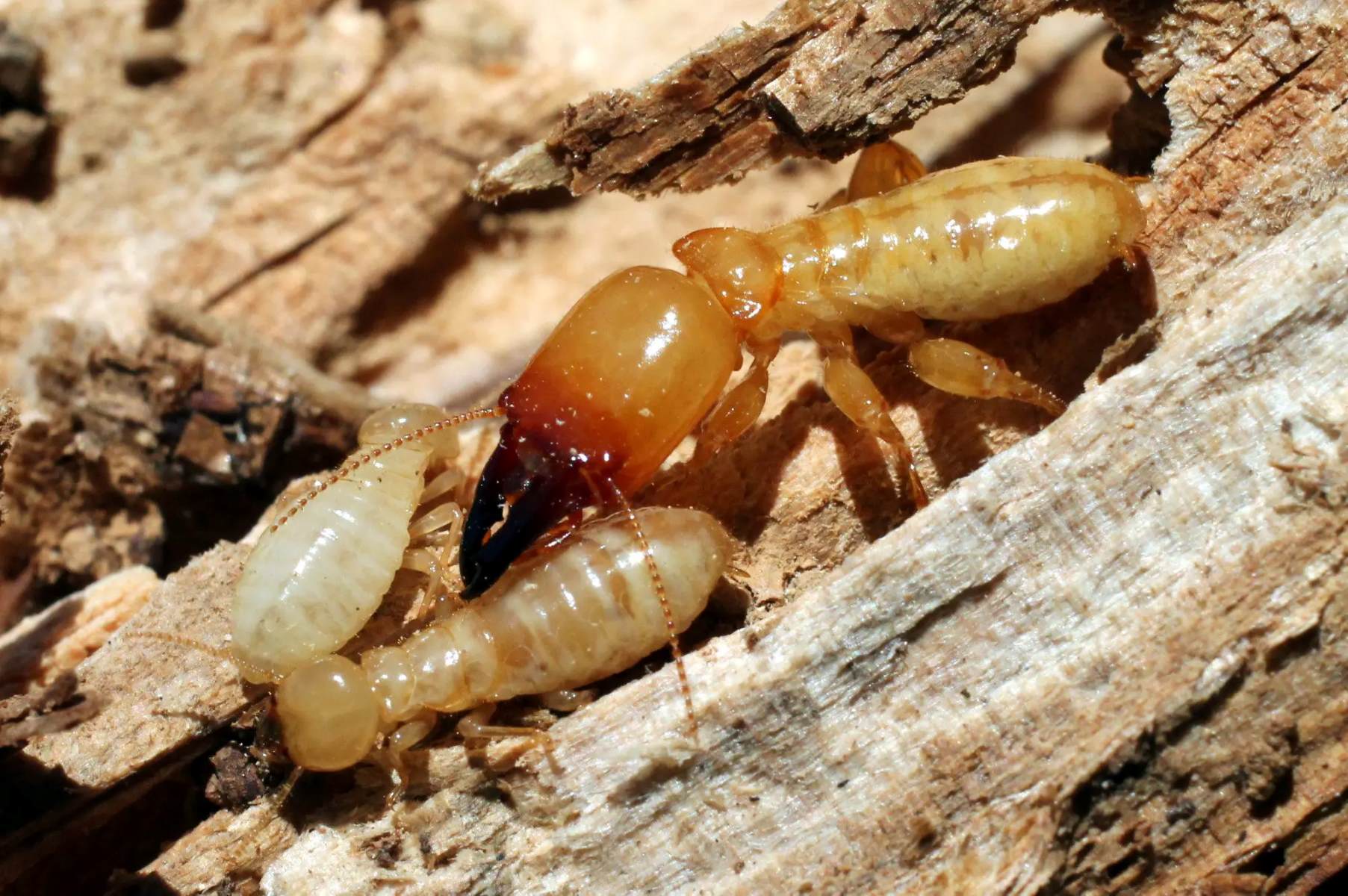
Are you curious about some creepy crawlies and pests that may be lurking in and around your home? Look no further! In this article, we will explore 10 fascinating pest facts that will leave you amazed and maybe even a little bit uneasy. From the incredible adaptability of insects to the astounding reproductive capabilities of rodents, pests are a diverse and often underestimated part of our natural world. Whether you’re a nature enthusiast, a homeowner looking to protect your property, or simply someone with a curiosity for all things creepy, this article will provide you with some captivating insights into the world of pests. So, put on your bug spray and get ready to delve into these 10 pest facts that will make your skin crawl!
Key Takeaways:
- Pesky pests like houseflies and rats can cause damage and spread diseases. Keep your surroundings clean and seal off entry points to keep them at bay.
- While some pests are a nuisance, others like spiders and bees play important roles in our ecosystem. Understanding their behavior can help maintain a balance in the bug world.
The Housefly can survive for up to a month.
Did you know that a housefly has a lifespan of only around 15-30 days? These pesky insects are known for their ability to quickly reproduce, with each female fly capable of laying up to 150 eggs at a time. It’s no wonder they are a common sight in many households, buzzing around and spreading germs as they go. Keep your surroundings clean and practice good hygiene to minimize their presence.
Rats can squeeze through a hole the size of a quarter.
It’s quite astonishing how flexible and crafty rats can be. Their bodies are designed to fit through small spaces, allowing them to infiltrate our homes through holes as tiny as a quarter. These clever rodents can quickly become a nuisance, causing damage to property and spreading diseases. Seal off any potential entry points to keep these unwanted visitors at bay.
Termites cause billions of dollars in damage each year.
Termites may be small, but their impact can be huge. These tiny insects are responsible for billions of dollars in property damage worldwide annually. They feed on wood and other cellulose materials, gradually weakening the structural integrity of buildings. Regular inspections and termite control measures are crucial in protecting your property from these silent destroyers.
Mosquitoes are the deadliest animals on Earth.
You might be surprised to learn that mosquitoes pose a greater threat to human life than any other animal on the planet. They are responsible for transmitting diseases like malaria, dengue fever, and Zika virus, causing millions of deaths each year. Take precautions such as using mosquito repellents and eliminating stagnant water sources to reduce the risk of mosquito-borne illnesses.
Bed bugs can survive without feeding for months.
Bed bugs are notorious for their resilience and ability to survive without food for extended periods. These nocturnal pests can go up to several months without a blood meal, making them difficult to eradicate. If you suspect a bed bug infestation, immediate action is necessary to prevent further spreading and potential health issues.
Cockroaches can live for a week without a head.
It’s a creepy fact, but cockroaches have a surprising ability to survive without their heads. Due to their decentralized nervous system, cockroaches can continue to live for approximately a week even after decapitation. This can make cockroach control efforts challenging, as they can still pose a threat even without a head.
Ants can lift objects up to 50 times their own body weight.
Don’t underestimate the strength of ants. These tiny insects are known for their remarkable strength and teamwork. They can lift and carry objects up to 50 times their body weight, which is equivalent to a human lifting a car. Understanding their behavior and implementing effective ant control methods can help prevent infestations.
Spiders are highly beneficial in controlling other pests.
While spiders might give you the creeps, they play a vital role in our ecosystem. They are natural pest controllers, feasting on other insects and helping to keep their population in check. So, instead of squashing every spider you come across, consider letting them work their magic in your home to maintain a balance in the bug world.
Bees are essential for pollination.
Bees are not just buzzing nuisances; they are crucial for the pollination of various plants and crops. They play a key role in maintaining biodiversity and ensuring our food supply. However, it’s important to exercise caution around bees and seek professional assistance in case of a bee infestation to avoid any potential stings or allergic reactions.
Silverfish can survive for up to three years without food.
Silverfish might be small, but they are incredibly resilient. These wingless insects can survive without food for an astonishingly long time, up to three years. They are often found in dark, damp areas of the house, feeding on starches and cellulose-based materials. Regular cleaning and reducing moisture levels can help prevent silverfish infestations.
Conclusion
In conclusion, understanding pest facts is crucial for effective pest management. By knowing the behavior, habitats, and life cycles of pests, we can implement proactive measures to prevent infestations and minimize their impact on our homes and health. From the threat posed by pests to the importance of regular inspections and the value of professional pest control services, there’s a lot to consider when it comes to dealing with these unwanted invaders. By staying informed and taking the necessary steps to keep pests at bay, we can create a clean, safe, and pest-free environment for ourselves and our loved ones.
FAQs
1. What are the most common pests found in homes?
The most common pests found in homes include ants, cockroaches, rodents (such as mice and rats), termites, spiders, mosquitoes, bed bugs, and flies.
2. How can I prevent pests from entering my home?
To prevent pests from entering your home, make sure to seal cracks and gaps, keep food tightly sealed, eliminate sources of standing water, keep the premises clean, and maintain proper sanitation.
3. Are there any natural remedies for pest control?
Yes, there are. Some natural remedies for pest control include using essential oils, vinegar, lemon, and baking soda. However, keep in mind that these remedies may not be as effective as professional pest control methods for severe infestations.
4. Should I hire a professional pest control service?
Hiring a professional pest control service is highly recommended, especially for severe infestations or recurring pest problems. Professionals have the knowledge, experience, and tools to handle pest situations effectively and safely.
5. How often should I schedule pest inspections?
It is recommended to schedule annual pest inspections to catch any potential pest problems early on and prevent extensive damage. However, frequency may vary depending on the location, previous pest issues, and other factors.
From houseflies surviving a month to rats squeezing through quarter-sized holes, these pest facts might make your skin crawl. But don't let termites, mosquitoes, or bed bugs keep you up at night. Cockroaches living headless for a week and ants lifting 50 times their weight are just nature's way of showing off. Spiders and bees play vital roles in ecosystems, even if they sometimes give us the heebie-jeebies. Silverfish's three-year food strike is impressive, but there's more to the world of pests than meets the eye. Explore additional captivating facts about pest control technicians, interesting pest tidbits, and the unsung heroes of pest management: exterminators.
Was this page helpful?
Our commitment to delivering trustworthy and engaging content is at the heart of what we do. Each fact on our site is contributed by real users like you, bringing a wealth of diverse insights and information. To ensure the highest standards of accuracy and reliability, our dedicated editors meticulously review each submission. This process guarantees that the facts we share are not only fascinating but also credible. Trust in our commitment to quality and authenticity as you explore and learn with us.


